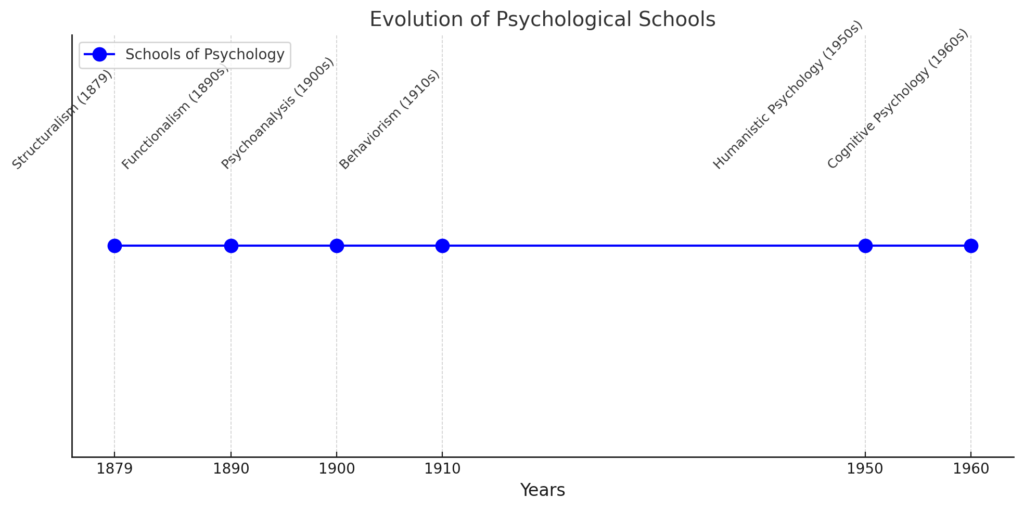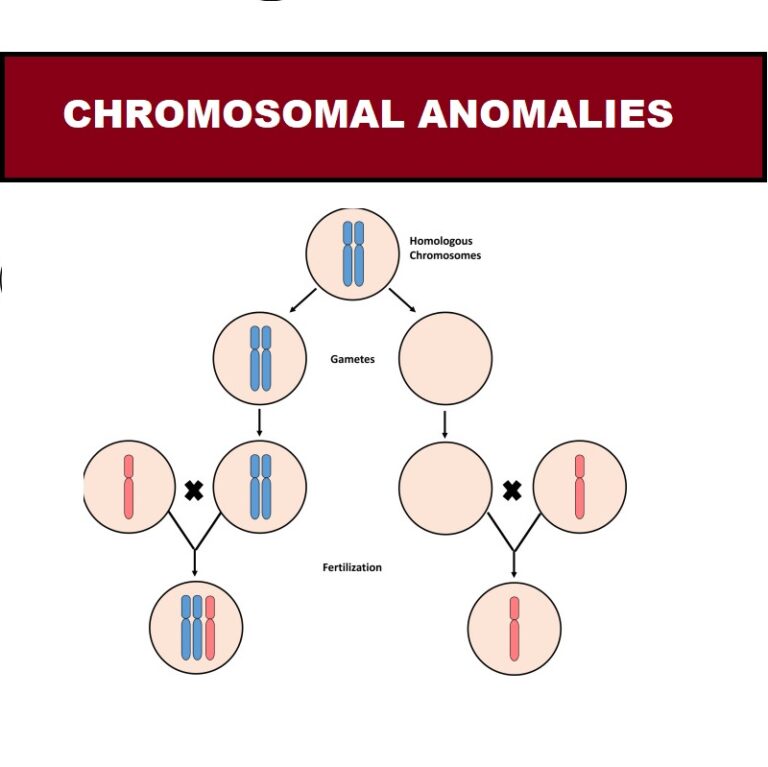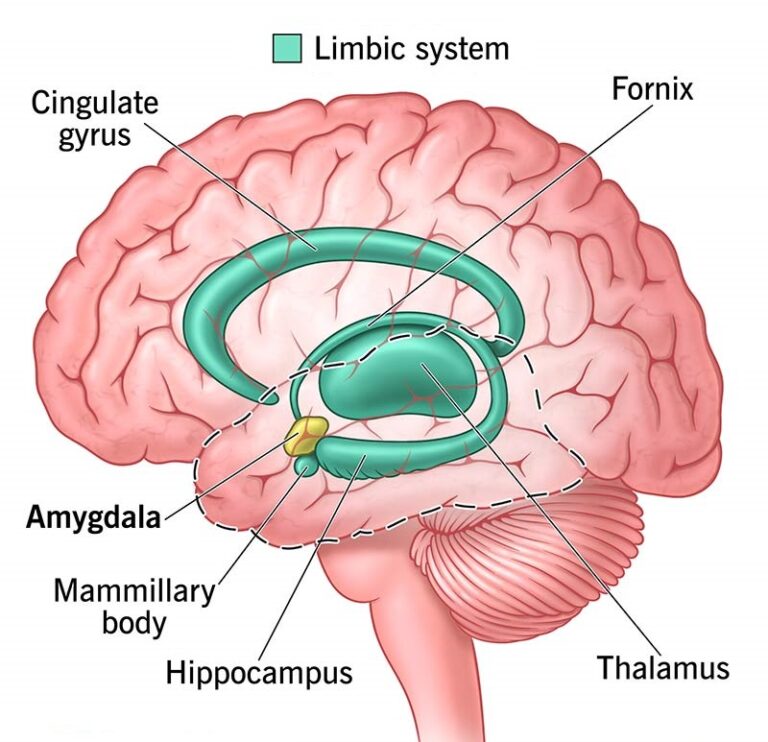
Emergence of Psychology: Schools of Psychology – Functionalism
Functionalism emerged as a refreshing response to the rigidity of structuralism, offering a dynamic perspective on the workings of the mind. Imagine stepping into the bustling intellectual circles of late 19th-century America, where scholars sought to understand not just the structure of consciousness but its purpose. Functionalism emphasized the adaptability of mental processes and their role in helping individuals navigate and survive in a complex world. This school of thought redefined psychology, infusing it with pragmatism and a focus on real-world application. Let us explore the origins, principles, and enduring legacy of functionalism, a movement that celebrated the fluidity of the human mind.
Historical Context
Functionalism was born in the fertile intellectual environment of late 19th-century America, a time marked by rapid industrialization and social change. It was deeply influenced by the evolutionary ideas of Charles Darwin, whose work inspired scholars to view the mind as an adaptive tool.
Founding of Functionalism
The foundations of functionalism were laid by a group of pioneering psychologists who sought to expand the horizons of psychological study:
- William James (1842-1910): Often regarded as the father of functionalism, James’s seminal work, The Principles of Psychology (1890), highlighted the adaptive nature of mental processes and their role in survival.
- John Dewey (1859-1952): Dewey extended functionalist principles into the realm of education, advocating for learning methods that align with human development.
- G. Stanley Hall (1844-1924): A trailblazer in child psychology, Hall’s work emphasized the evolutionary roots of human behavior.
Key Principles of Functionalism
At its core, functionalism sought to answer the question: Why do we think and behave as we do? It shifted the focus from the static structure of consciousness to its dynamic functions.
Core Assumptions
- Purpose Over Structure: Functionalists believed that understanding the purpose of mental processes was more important than dissecting their components.
- Adaptation as a Key Theme: Inspired by Darwin, they viewed the mind as an adaptive tool shaped by evolution to meet environmental challenges.
- Holistic Approach: Functionalism emphasized the interconnectedness of mental processes, behavior, and the environment.
Goals of Functionalism
- To explore how mental processes enable individuals to adapt to their environments.
- To study the interplay between mind, behavior, and social context.
- To apply psychological insights to real-world problems, such as education and work.
Methodology
Functionalism embraced a diverse and inclusive approach to research, combining introspection with empirical observation.
Experimental Techniques
- Observation of Behavior: Functionalists studied behavior in naturalistic settings, such as schools and workplaces, to understand its adaptive functions.
- Comparative Studies: Inspired by Darwin, they conducted comparative studies across species to explore evolutionary continuities.
- Application-Oriented Research: Functionalists were pioneers in applying psychological insights to practical fields, such as education and mental health.
Table 1: Key Components of Functionalist Methodology
| Aspect | Description |
|---|---|
| Behavioral Studies | Focus on observable actions and their purposes |
| Comparative Analysis | Study of similarities across species |
| Real-World Relevance | Application to societal and educational challenges |
Criticisms of Functionalism
While functionalism brought a fresh perspective, it was not without its challenges. Critics pointed out its lack of a unified framework and the potential for overgeneralization.
Lack of Precision
- Functionalism was criticized for its broad and flexible definitions, which made it difficult to establish clear, testable hypotheses.
- Its emphasis on purpose over structure sometimes led to speculative interpretations.
Overlap with Other Disciplines
- Critics argued that functionalism often encroached on the territory of sociology and anthropology, diluting its focus on psychology.
Emergence of Rivals
- Behaviorism: Led by figures like John B. Watson, behaviorism rejected the introspective methods of functionalism in favor of observable behaviors.
- Psychoanalysis: Freud’s psychoanalytic theory provided a competing framework that focused on unconscious drives rather than adaptive functions.
Legacy of Functionalism
Despite its decline as a distinct school of thought, functionalism left an indelible mark on psychology, shaping its methods and applications.
Contributions to Psychology
- Applied Psychology: Functionalism’s practical orientation laid the foundation for applied fields such as educational and industrial psychology.
- Focus on Adaptation: Its emphasis on adaptation influenced subsequent schools, including behaviorism and cognitive psychology.
- Holistic Perspective: Functionalism encouraged a holistic view of psychology, integrating mind, behavior, and environment.
Chart 1: Evolution of Psychological Schools Post-Functionalism A timeline highlighting key transitions from functionalism to behaviorism, psychoanalysis, and cognitive psychology.

Conclusion
Functionalism is a story of evolution and adaptability, mirroring the very principles it sought to understand. It represents psychology’s journey toward relevance and application, driven by a desire to make sense of the human mind in its natural context. While its identity as a school of thought may have faded, functionalism’s spirit lives on in the applied and interdisciplinary approaches that define modern psychology.
References
- James, W. (1890). The Principles of Psychology. Henry Holt and Company.
- Dewey, J. (1896). The reflex arc concept in psychology. Psychological Review, 3(4), 357-370.
- Hall, G. S. (1904). Adolescence: Its psychology and its relations to physiology, anthropology, sociology, sex, crime, religion, and education. Appleton.
- Schultz, D. P., & Schultz, S. E. (2011). A History of Modern Psychology. Wadsworth Publishing.







